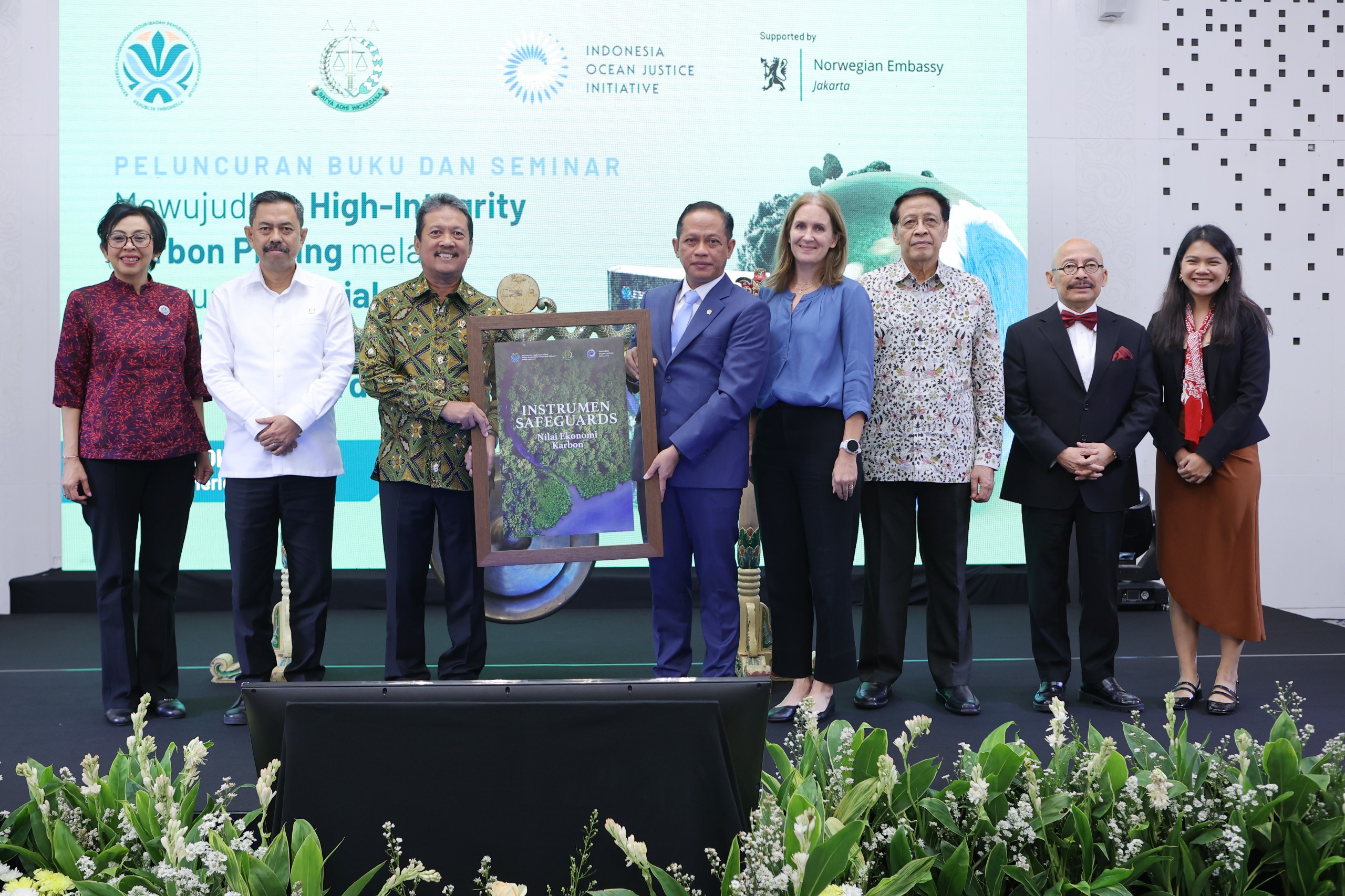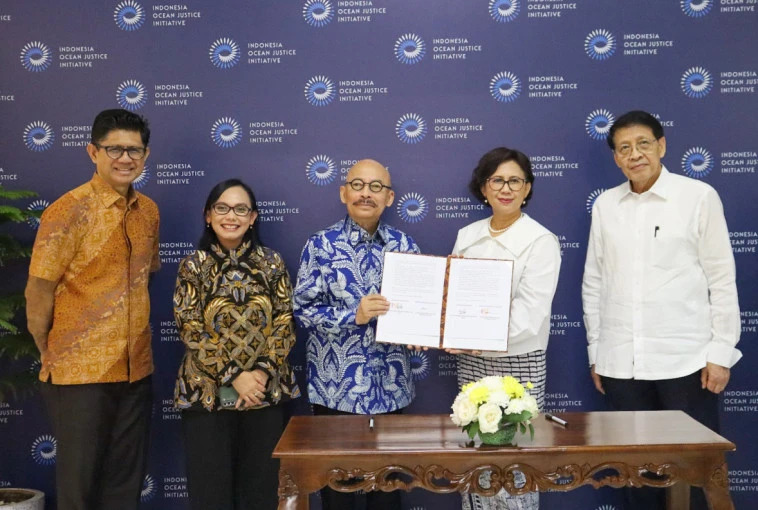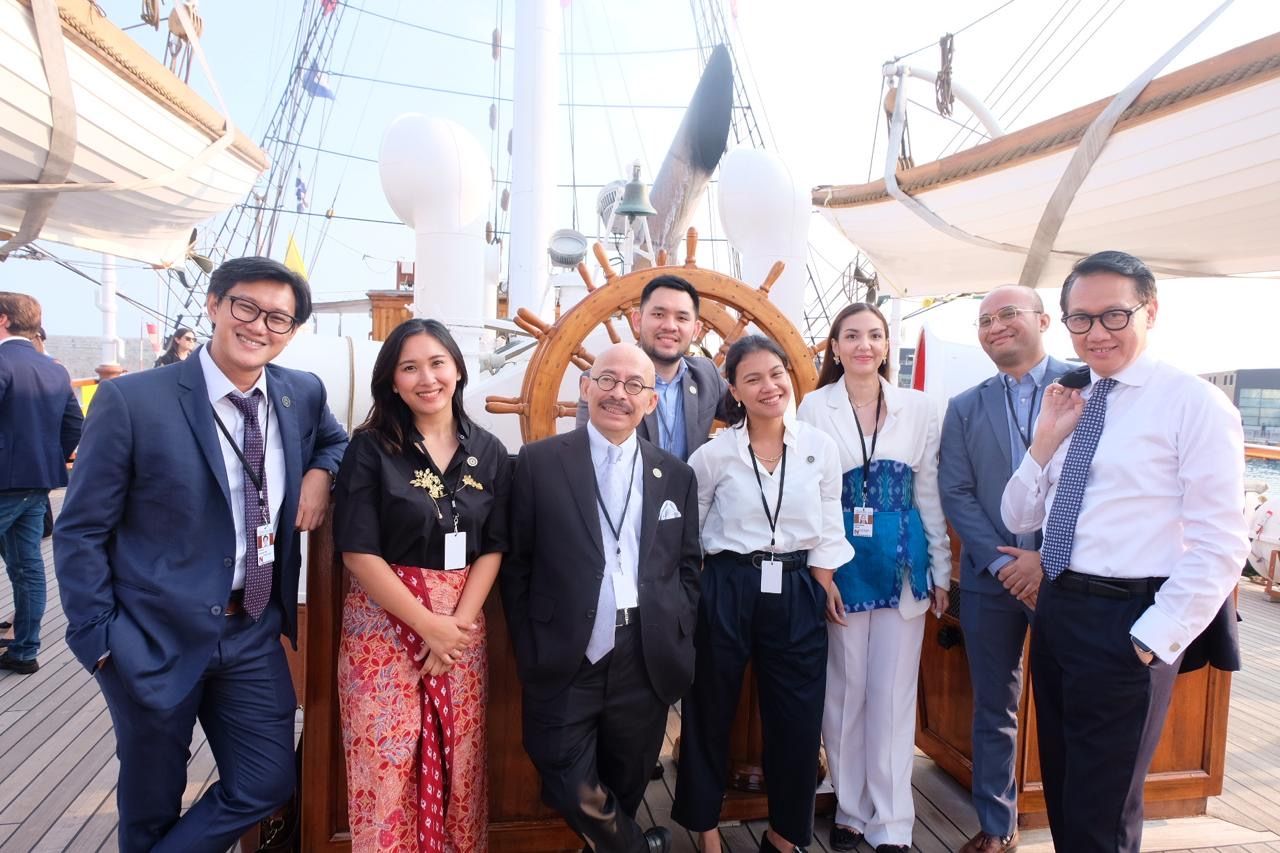The Ministry of Environment (Kementerian Lingkungan Hidup), together with the Attorney General’s Office of the Republic of Indonesia and the Indonesia Ocean Justice Initiative (IOJI), launched a book and held a seminar titled “Realizing High-Integrity Carbon Pricing through Strengthening Social, Environmental, and Legal Safeguards in Indonesia.”
The event, held in Ballroom 3 Sasono Mulyo at Hotel Le Meridien Jakarta on October 15 2025, was attended by three high-ranking state officials who delivered keynote remarks: Hanif Faisol Nurofiq (Minister of Environment of Indonesia), Sakti Wahyu Trenggono (Minister of Marine Affairs and Fisheries of Indonesia), and ST Burhanuddin (Attorney General of Indonesia), whose remarks were read by the Deputy Attorney General for General Crimes.
In his speech, Minister of Environment Hanif Faisol Nurofiq emphasized the importance of ensuring that Indonesia’s carbon pricing policy is not solely economically oriented, but also guarantees environmental sustainability and community well-being. Meanwhile, Minister of Marine Affairs and Fisheries Sakti Wahyu Trenggono highlighted the significant role of the marine sector in the climate change mitigation agenda.
Attorney General ST Burhanuddin, represented by the Deputy Attorney General for General Crimes, stressed the importance of law enforcement in upholding the credibility of environmental policies. As part of the prosecution service’s commitment as public prosecutor, the Attorney General’s Office is in the process of developing guidelines for Handling Criminal Cases in the Implementation of Carbon Economic Value (Nilai Ekonomi Karbon), so that in the event of violations, prosecutors have clear references to handle cases skillfully and professionally.
Therefore, safeguards instruments are needed to ensure that the implementation of NEK aligns with its primary goal, namely emission reduction, as emphasized by IOJI CEO Mas Achmad Santosa:
“The implementation of NEK must always be grounded in its main objective: mitigating climate change, not merely pursuing incentives.”




